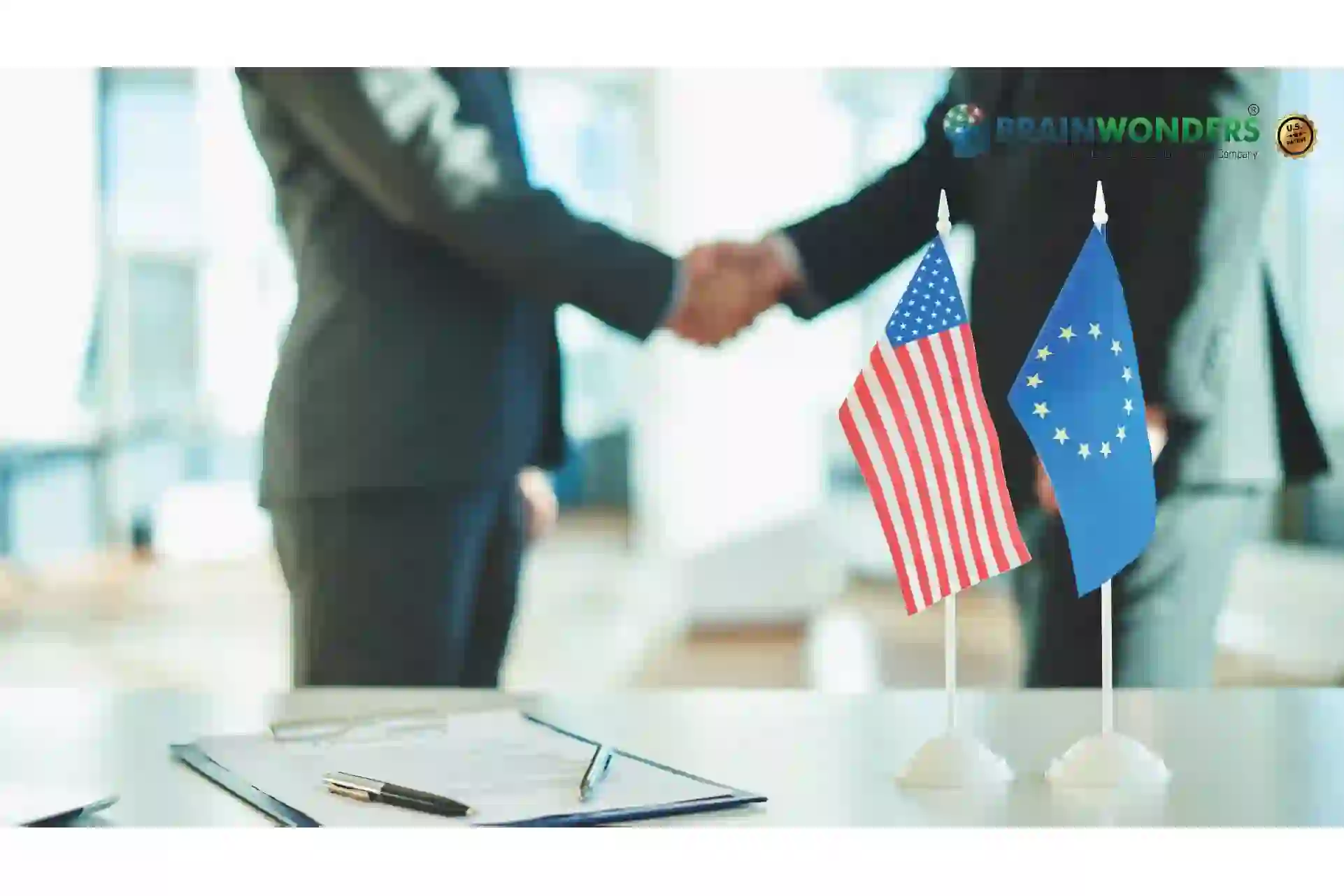How to become an International Relations Specialist
Overview, Courses, Exam, Colleges, Pathways, Salary

Overview
Who is International Relations Specialist ?
An International Relations Specialist is a professional who analyzes and navigates the complex dynamics between countries, organizations, and global actors. They work to understand and influence international political, economic, and social interactions. These specialists research and interpret international issues, track geopolitical developments, and provide strategic insights for decision-makers. They contribute to diplomatic efforts, trade negotiations, conflict resolution, and international cooperation. Additionally, they may engage in policy analysis, conduct risk assessments, and offer expertise on global security, human rights, environmental concerns, and trade policies. Strong analytical skills, cultural awareness, diplomacy, and the ability to communicate effectively globally are essential for success in this role. International Relations Specialists play a vital role in shaping international policies, fostering collaboration, and promoting peace and stability in an increasingly interconnected world.
Typical day at work
What does International Relations Specialist do?
Job description, Profiles, Roles and Duties:
- Predicting social, economic and political trends
- Recognizing international concerns for examination and analysis
- Evaluating likely reasons and implications of international problems, and coming up with possible solutions
- Counsel employers on public policy and relations subjects
- Assessment of policies and program
- Gather, analyze and interpret data from election outcomes, public opinion reviews and the development of recommendations in foreign legislation
- Creating government and international foreign policy
- Upholding current information and decisions regarding foreign and domestic political affairs
- Assessment of the services and initiatives for foreign cooperation
- Giving statements or criticism in the media about public policies, problems and happenings
- Transcribe legislative draft plans and formulate speeches, correspondence and foreign policy articles
- Assist as a consultant on international laws and foreign relations regulations
- Analysis and interpretation of foreign policy
- Networking with members of government, foreign organizations, governmental or otherwise, and the mass media
- Carrying out and assessing the international cooperation program and events
- Develop and assess problems and initiatives through the examination of foreign policies and standards, developments abroad and reports
- Leading the compilation, handling and review of economic data
- Develop and formulate, in-depth investigation of the concerns allotted at the national, local and global level
Abilities and Aptitude needed
What are the skills, abilities & aptitude needed to become International Relations Specialist?
- Recruiters in the international relations field are looking, in addition to technological expertise, at the foreign experience, cross-cultural knowledge and language fluency of applicants. A demonstrated aptitude for collaborating well in cross-cultural teams, evidence of a foreign mindset and field experience in developing countries will help you in your career in international relations.
- Another ability required is to turn concepts/ideas into concrete goals and to recognise programs on international social concerns by using theoretical and diplomatic methodologies for international issues. Additionally, it would help if you built universal and multicultural awareness, which is critical in today's global employment market.
- International relations professionals have a thorough grasp of how nations interact socially, economically, and diplomatically. As such, you are accountable for an organisation's political and commercial well-being. As a result, you should possess analytical, problem-solving, and conflict-resolution abilities.
- In this field, eloquence in a second language is desirable, as is the experience of studying or residing in the state or country in which the specialist specialises.
- A prerequisite for this profession is being trustworthy enough to manage sensitive/confidential details.
Salary
Salary for International Relations Specialist?
The salary of an International Relations Specialist is as follows :
- Minimum Monthly Salary: Entry-level International Relations Specialists or those in junior positions can expect a monthly salary ranging from INR 25,000 to INR 50,000. This salary range is typical during the initial stages of their careers in international relations.
- Maximum Monthly Salary: Experienced and highly accomplished International Relations Specialists, especially those working with reputable international organizations or demonstrating expertise in complex diplomatic matters, have the potential to earn a monthly salary ranging from INR 1,20,000 to INR 2,50,000 or even more.
- Annual Salary: The annual salary of an International Relations Specialist shows considerable variation, ranging from INR 3,00,000 to several lakhs or more. This range is influenced by years of experience, specialization in specific regions or global issues, and the ability to navigate international political dynamics.
- Highest Position and Scope: The peak of achievement for International Relations Specialists often comes to fruition when they rise to senior diplomatic positions, lead international negotiation teams, or become key policy advisors. Accomplished International Relations Specialists with a deep understanding of global affairs, strong analytical skills, and a proven record of effective international collaboration can command significant recognition and compensation. The scope for International Relations Specialists is promising, driven by the increasingly interconnected world and the ongoing need for diplomatic solutions. As nations interact on various fronts, global challenges require cooperative strategies, cross-border issues demand resolution, and international organizations strive for effective governance. International Relations Specialists play a crucial role in fostering diplomacy, promoting peaceful relations, and shaping policies that contribute to global stability and cooperation.
Pathways
How to become an International Relations Specialist?
Entrance Exam
Entrance Exam for International Relations Specialist ?
Courses
Which course I can pursue?
Best Colleges
Which are the best colleges to attend to become an International Relations Specialist?
Industries
Which Industries are open for International Relations Specialist?
International Relations Specialists have a wide range of industries where they can contribute their expertise in diplomacy, global affairs, and cross-border interactions. Some of the sectors that offer opportunities for International Relations Specialists include:
- Government and Diplomacy: Working for foreign affairs ministries, embassies, consulates, and international organizations, International Relations Specialists play a central role in shaping foreign policies, conducting diplomatic negotiations, and fostering international cooperation.
- International Organizations: Organizations like the United Nations, World Bank, International Monetary Fund (IMF), World Trade Organization (WTO), and regional bodies rely on specialists to address global challenges, development initiatives, and economic cooperation.
- Nonprofit and Non-Governmental Organizations: NGOs focusing on humanitarian aid, human rights, global health, environmental conservation, and conflict resolution employ specialists to drive advocacy, policy analysis, and project implementation.
- Corporate Sector: Multinational corporations require International Relations Specialists to navigate international regulations, trade policies, geopolitical risks, and corporate social responsibility initiatives.
- Media and Journalism: International news agencies, global affairs publications, and media outlets need specialists to provide insights, analysis, and reporting on international events and political developments.
- Academia and Research: Working in universities, research institutes, and think tanks, International Relations Specialists conduct research, publish academic work, and contribute to policy analysis.
- International Trade and Commerce: Trade associations, chambers of commerce, and trade policy organizations employ specialists to navigate international trade agreements, market access, and trade negotiations.
- Security and Defense: Specialists contribute to security and defence organizations, analyzing geopolitical risks, arms control agreements, and global security challenges.
- Energy and Natural Resources: In industries like oil, gas, and mining, specialists deal with international agreements, regulatory compliance, and geopolitical factors affecting resource access.
- Travel and Tourism: With globalization, the travel and tourism industry requires specialists to navigate international regulations, cross-border operations, and global travel trends.
- International Law: Law firms specializing in international law hire specialists to assist in cross-border legal matters, international contracts, and dispute resolution.
- Cultural Exchange and Education: Organizations promoting cultural exchange, international education programs, and language learning benefit from specialists' insights into cross-cultural understanding and global education trends.
- Human Resources and Global Mobility: Multinational companies often have HR roles dedicated to managing international employees, immigration compliance, and expatriate assignments.
- Consulting and Risk Assessment: International Relations Specialists provide expertise to consulting firms, assessing political and economic risks for businesses operating globally.
- International Development: Specialists contribute to organizations focused on poverty alleviation, sustainable development, and global health initiatives.
internship
Are there internships available for International Relations Specialist?
Internships for aspiring International Relations Specialists provide valuable exposure to the field and an opportunity to apply theoretical knowledge in real-world contexts. Here are some potential internship options:
- Government Agencies: Interning with government departments, such as the Ministry of Foreign Affairs, State Department, or international affairs divisions, offers insights into diplomatic processes, policy formulation, and international negotiations.
- International Organizations: Organizations like the United Nations, World Bank, International Monetary Fund (IMF), and World Trade Organization (WTO) often offer internships to gain experience in global governance, development, and diplomacy.
- Think Tanks and Research Institutes: Internships with research organizations focused on international relations allow you to contribute to policy research, write reports, and analyze global issues.
- Embassies and Consulates: Interning at foreign embassies or consulates provides a firsthand understanding of diplomatic relations, consular services, and public diplomacy.
- Nonprofit Organizations: NGOs working on international development, human rights, conflict resolution, and global issues offer internships to support advocacy efforts and projects.
- Multinational Corporations: Companies with international operations offer internships in global marketing, trade compliance, and corporate social responsibility.
- Media Outlets: Interning with international news agencies, media organizations, or global affairs publications can involve reporting on international events and analyzing geopolitical developments.
- Security and Defense Organizations: Internships with organizations focused on global security, arms control, and conflict prevention provide insights into defence policies and international security challenges.
- Cultural and Exchange Programs: Cultural exchange organizations and international education programs often offer internships to support cross-cultural initiatives.
- Research and Consulting Firms: Research firms specializing in international relations, geopolitical analysis, and risk assessment may provide opportunities to contribute to research projects.
- International Law Firms: Interning with law firms specializing in international law offers insights into the legal aspects of global issues, treaties, and cross-border disputes.
- Trade Associations and Chambers of Commerce: Internships in these organizations can involve trade policy research, market analysis, and support for international business initiatives.
Career outlook
What does the future look like for International Relations Specialist?
Careers in international relations usually exist in three sectors: private, public, and non-profit/NGO. Employers in international relations include governments, international organisations, multinational corporations, development consulting businesses, and think tanks. Professionals working in this arena may be engaged by government offices and agencies working overseas or in foreign policy analysis and interpretation embassies. They may also work in the departments of Public Relations in international organisations, foundations, and industries, serving as links between the doings of the company and the entities regulating them under international law. Finally, international relations specialist jobs are also available in media outlets, serving as media-to-foreign government and business links.






